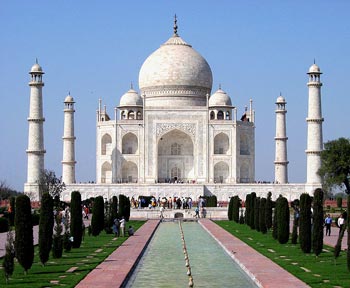The topic of emerging markets has often divided seasoned investors. Some see them as risky business while others recognise the potential for huge growth. What we do know is that in the last decade emerging equities have proved to be valuable acquisitions, in many cases outperforming their counterparts in developed markets. This increased rate of performance can be attributed to the markets evolving through political boundaries and economical unrest.
Figures show that emerging markets have recorded growth in 2008 despite the worldwide money crisis that adversely affected equities the world over. Financial experts are also predicting that emerging markets will prove to help hoist the world’s finances up and away from the recent woes that have encumbered it so.
If we look at some of the facts from the last few years then these predictions will come as no surprise. In 2007 economies in emerging markets saw growth of 8.3 percent whereas established markets grew by just 2.7 percent. Another important figure to take in is the market contribution of emerging markets, 15 years ago they contributed to only four percent of worldwide economic growth yet this year their contribution has risen to 50 percent, with more growth expected.

One of the biggest emerging markets in terms of growth and economic contribution is India. Indian equity markets have performed very strongly amidst the economic meltdown with their turnover on a daily basis showing averages five times that of 2002, from $750 million to $3.6billion. This has led to a dramatic increase in the amount of large-cap stocks that are available for investors, foreign and domestic alike. Recent developments in India have only served to make its equities even more attractive to foreign investors. The new government, which was elected in 2009, has made great efforts to improve many facets of the country including healthcare, education, transport, telecommunications and general infrastructure; in fact they have spent four percent of their GDP on these improvements. Another positive aspect of India’s growth is the rise in its citizen’s average income which in turn will lead to more home grown investments.
People who do choose to make investments in India may indeed find that they make a significant gain on their money. Tata Motors and ICIC Bank are two of the heavyweights that lie in the Bombay Stock Exchange (Sensex), both seeing a double digit increase in their shares.
China is another country that is improving its investment prospects by improving its land. It has allowed for nine percent of its GDP to be spent on infrastructural growth.
Brazil is another emerging market that has made great financial strides. With a tremendous amount of natural resources Brazil is an important producer of livestock and agriculture, it also plays host to a big chunk of the world’s water supplies, 12 percent, and uses hydropower to source the country’s energy. Brazil’s government have helped improve democracy and financial stability in their country, these improvements led to Brazil being only marginally affected by the global cash crisis. With major exports like commodities and agriculture still in high demand from the likes of China and India and, as it is the world’s biggest producer of beef, coffee and sugar, Brazil was able to weather the financial storm successfully.

With emerging markets now carrying more weight in the financial world experts have predicted that 2010 will see emerging markets GDP grow by 5.5 percent compared to just 1.3 percent for established markets. This growth will see the GDP of emerging markets surpass that of America, with even more growth projected in the years to come. With rapidly rising populations that are growing by five times the rate of developed countries more predictions, this time from the UN, state that over a billion people from developing countries will be a part of the consumer group of middle class spenders by 2030. More UN predictions suggest that out of the 20 biggest cities a total of 17 will be made up of developing markets as a result of widespread urbanisation. Such growth will lead to an increased demand for goods, energy and technology.
Despite all this positive projection many people may still worry that emerging markets are too unstable to be suitable investments. Within the last decade portfolio investments in emerging markets have been just as risky as established markets yet have actually shown better returns, evidenced by the MSCI emerging markets index, which has surpassed the performance of its established market rival quite considerably.
If you wish to invest in emerging markets a good method would be go through investment funds. The currencies of emerging markets have made strong gains against the pound and the dollar but making cash or income investments may still be slightly too risky. The wise investor will invest in manufacturing and commodities as these areas will continue to grow in Brazil, China and India.
Of course where you invest and how much you invest is entirely up to you but if you would like financial advice then get in touch with an IFA.

